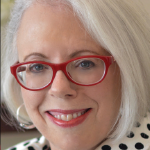Dr. Hassett notes a growing interest in creating physician well-being programs in medical schools and institutions. For example, a Patient Death Debriefing Session developed at Memorial Sloan Kettering Cancer Center in New York City, described in the Journal of Graduate Medical Education, offers a structured yet practical way to address residents’ emotional reactions following the death of a patient.3 Hospitals and other institutions are also taking steps aimed at promoting personal resilience and work-life balance, such as revising work hours, enhancing physical environments and establishing a positive culture.
The Problem with Perfectionism
Gail Gazelle, MD, FACP, FAAHPM, an executive coach who helps physicians learn to avoid burnout, notes that doctors’ orientation toward perfectionism, learned early in their medical training, can exact a heavy toll in their lives. “We know it’s unattainable, we’ll always come up short, because that’s part of being human. A harsh, self-critical approach is what gets modeled for us in physician training. But that standard makes it harder to function with adverse events or error.”

Dr. Gazelle
With growing emphasis on productivity and the administrative demands of their jobs, physicians only have so much emotional reserve, she says. “Physicians who don’t want to admit their human fallibility are even more isolated. They can feel like imposters, leaving them more vulnerable to harsh self-judgment. Rheumatology, with its high levels of chronic pain, is particularly challenging. We’re not always able to help patients, even at the top of our game. We become fearful of our own emotions and then, when they arise, we get scared and push them away. You can expend a lot of energy resisting your emotions, rather than just being with them. But really, emotions are part of life,” Dr. Gazelle says.
It’s not hard for doctors to learn to take their own emotional temperatures, using techniques of mindfulness meditation, and thereby become more present with their emotions without having them escalate, she says. “When I work with clients, I help them unpack their emotions. One of the things we’ve learned is that when we focus on our strengths and accomplishments, and set a clear intention to acknowledge what’s going well today, we are better able to deal with whatever comes up.”
Dr. Gazelle is board certified in the specialty of hospice and palliative medicine (HPM), in which it is expected that many patients will decline in health and eventually die. But the clinician’s goal is to relieve suffering, regardless of the ultimate outcome. Dr. Stuart thinks HPM practitioners may have something to teach rheumatologists about how to process their feelings of sadness and loss before moving on to the next seriously ill patient.


